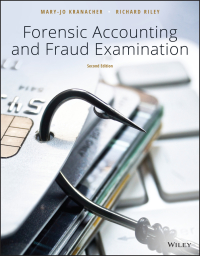
a. 21. Y purchases a restaurant from R for $140,000, $120,000 of which is allocated to tangible assets (the remaining $20,000 is allocated to goodwill). Y makes substantial improvements to the restaurant (i.e., he changes the decor from Hawaiian to French), which costs $20,000, and hires a handyman to make minor repairs for $2,000. How will the three expenditures listed above likely be treated for tax purposes? $120,000 depreciated/amortized over the tax life of the assets, $42,000 business expense. b. $140,000 depreciated/amortized over the tax life of the assets, $22,000 business expense. $160,000 depreciated/amortized over the tax life of the assets, $2,000 business expense. d. $140,000 depreciated/amortized over the tax life of the assets, $2,000 business expense. c. a. 22. T takes out a personal loan for $50,000 5 percent. He immediately purchases $50,000 of tax-exempt bonds earning 4 percent a year. The IRS will probably view the income from the bonds as taxable. b. declare that the results of the transactions cancel each other out, so that they are a "wash" for T. c. allow the interest deduction. d. deny the deduction for the interest expense. 23. An individual taxpayer owns and operates a retail shoe store as a sole proprietor, with average gross sales for the past three years of $27,000,000. Which statement reflects the business' accounting requirements for Federal income tax purposes? The taxpayer must use the cash basis for all items of revenue, cost, and expense. b. The taxpayer may use either the cash or accrual basis for all items of revenue, cost, a. and expense. c. d. The taxpayer must use the accrual basis for all items of revenue, cost, and expense. The taxpayer must use the accrual basis for all items affecting the computation of gross profit on sales but may use the cash basis in accounting for other expenses. 24. B is self-employed as a CPA. He is required to take continuing education classes to maintain his license. He enrolls in law school and takes a course on tax law. B wants to deduct the cost of attending the class. Which statement best describes the deductibility of the cost? B may not deduct the cost of the class if the tax course helps him in his practice. b. B may not deduct the cost if the education qualifies B for a new trade or business. B may deduct the cost of the class for any reason. d. B may not deduct the cost if the education merely maintains his current skills. a. c







